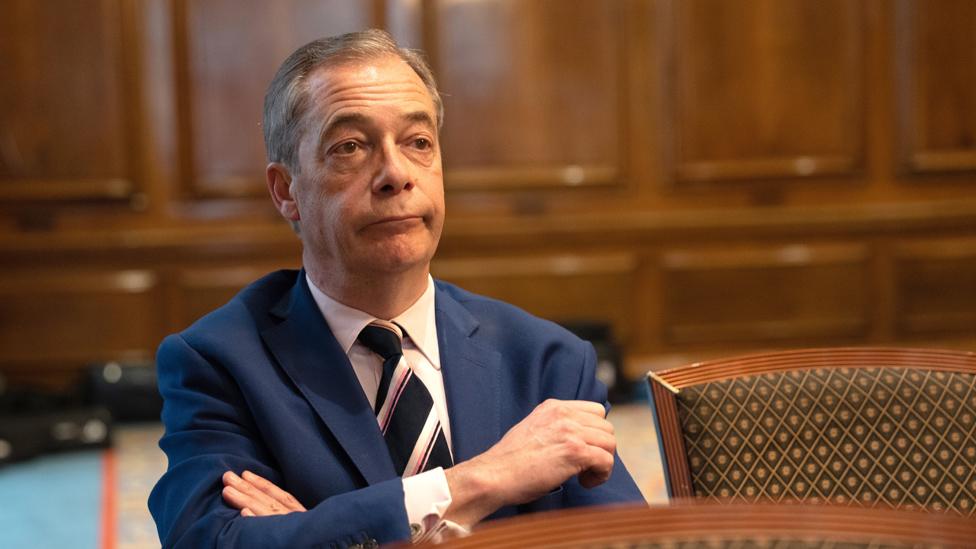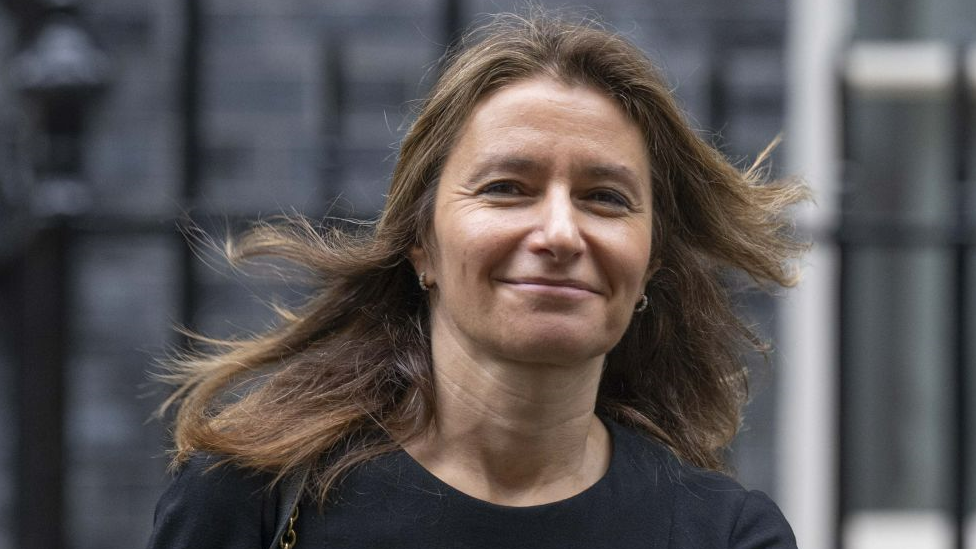Nigel Farage bank account shut for falling below wealth limit, source tells BBC
- Published

Update 21st July 2023: We acknowledge that the information we reported - that Coutts' decision on Nigel Farage's account did not involve considerations about his political views - turned out not to be accurate. Since this article was originally published on the 4th July, Mr Farage submitted a subject access request to Coutts bank and obtained a report from the bank's reputational risk committee. While it mentioned commercial considerations, the document also said the committee did not think continuing to have Mr Farage as a client was "compatible with Coutts given his publicly-stated views that were at odds with our position as an inclusive organisation". We have amended this article's headline and copy to make clear that the details about the closure of Nigel Farage's bank account came from a source.
Nigel Farage fell below the financial threshold required to hold an account at Coutts, the prestigious private bank for the wealthy, the BBC has been told.
It is understood he was subsequently offered a standard account at NatWest which owns Coutts.
Mr Farage has said he believes his account is being shut for political reasons and he has since been turned down by nine other lenders.
But a source familiar with Coutts' move said it was a "commercial" decision.
"The criteria for holding a Coutts account are clear from the bank's website," they told the BBC.
Coutts requires its customers to borrow or invest at least £1m with the bank or hold £3m in savings.
Speaking to the BBC from France, Mr Farage did not dispute the fact that he did not meet Coutts' threshold, but added: "They didn't have a problem with it for the last 10 years."
The former leader of the UK Independence Party and Brexiteer later tweeted that at "no point"" had Coutts given him a minimum threshold., external
He added that his business account was being closed despite the fact that last year he had "large significant positive cash balances" going through it.
Coutts said it did not comment on individuals' accounts.
Mr Farage recently posted a six-minute video on Twitter blaming "serious political persecution" from an anti-Brexit banking industry.
He said that losing his bank account was the equivalent of being a "non-person" and that the decision may "fundamentally affect my future career and whether I can even go on staying living here in this country".
Speaking to BBC Radio 4's the World at One on Tuesday, Mr Farage said that Coutts had given him "no reason whatsoever" when they wrote to say that his accounts would be closed, and he was given two months to find a new bank.
Mr Farage also disputed the fact that he was offered a NatWest account at the time his Coutts accounts were withdrawn. He says the offer of a NatWest account came late last week.
The former politician said the bank only did this when he "went public" with his story, and that it only offered him a personal account, not a business account.
"Well what use to me is that?" he told the BBC. "I operate through a business, that's how I live. Any income that comes to me personally comes through my business."
The BBC understands that the offer of a NatWest account still stands.
Mr Farage claims other banks have refused to take him on as a customer on the grounds that he is a "politically exposed person" (PEP).
A PEP generally presents a higher risk for financial institutions as regulators consider such people to be more exposed to the risk of potential involvement in bribery and corruption by virtue of their position and the influence they may hold.
Mr Farage told the BBC: "Are you telling me that all the other banks say it was a PEP thing and Coutts wasn't? Draw your own conclusions."
Speaking on GB News later on Tuesday, he questioned why Coutts's had been "discussing my financial situation publicly," adding it was not "ethical".
A Treasury spokesman said it would be a "serious concern" if financial services were being denied to those exercising their right to lawful free speech.
"We are already looking into this issue and have passed a law that requires the Financial Conduct Authority (FCA) to review how banks treat politically exposed persons - so we can strike the right balance between the customer's right to free speech and the bank's right to manage commercial risk."

Sign up for our morning newsletter and get BBC News in your inbox.

Related topics
- Published3 July 2023
